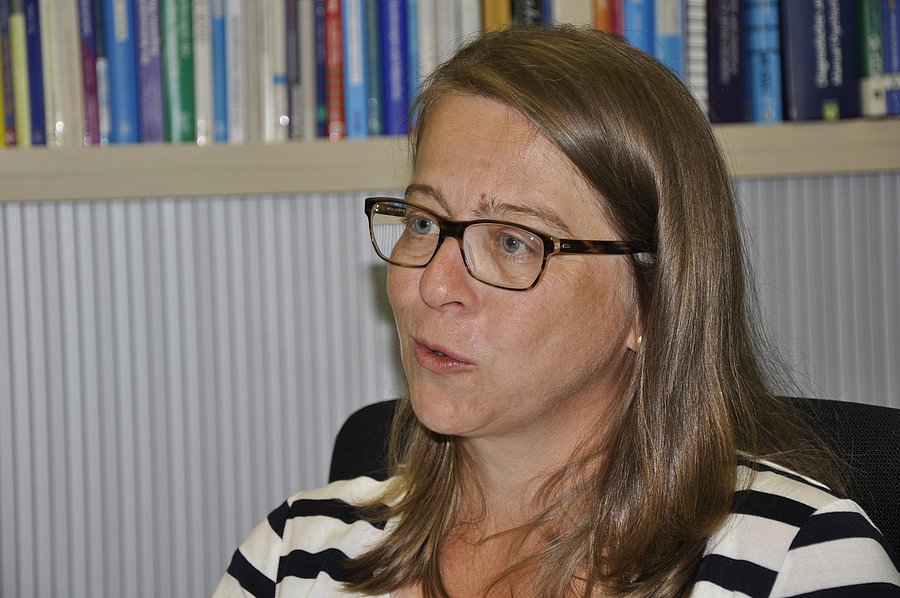
The Little University Outpatients Department in Our Street
The Psychotherapy Outpatients Department provides the University of Wuppertal with a unique teaching facility.
A comprehensive range of diagnostic and psychotherapeutic aids for mental illness are offered in the Psychotherapy Outpatients Department, including behavioural therapeutic approaches. The close collaboration with the University of Wuppertal allows the Outpatients Department staff to work at the cutting edge of the relevant science whilst providing opportunities for university research projects.
Work there is carried out by a team of nine research associates and therapists under the auspices of Prof. Dr. Alexandra Martin. Between 70 and 100 clients are treated each year with no interruption to teaching operations. Alexandra Martin has been Professor of Clinical Psychology and Psychotherapy since 2012, and is responsible for the establishment and expansion of outpatient services. Her own research is focused on somatic symptom disorders, body dysmorphic disorders, psychotherapy research, biofeedback and applied psychology as well as the relevance of subjective disease concepts.
Knowledge transfer through the outpatient facility, i.e., the exchange of information between the research community and the public is particularly important as it occurs directly. People suffering from long-term psychological symptoms can be treated on site with due consideration to the latest research findings. Due to its methodological facilities and equipment, the outpatient clinic can provide more tailored therapies than would be possible in normal practice.
The success proves the concept. More and more patients are turning directly to the Psychotherapy Outpatients Department and constructive links have been established to clinics throughout the Bergisch Tri-City Area. Very welcome plans are in hand to expand the Psychotherapy Outpatients Department, although the necessary space is not yet available.
In an interview with Prof. Martin, the University of Wuppertal Research & Knowledge Transfer Office explored the question of how psychological research is actually conducted. To answer this question, an experimental study is sketched out below, which looked at somatic symptom disorders involving debilitating somatic symptoms with no apparent underlying biological cause. For example, one may ask how patients deal with nascent anxiety reactions and how these affect somatic processes, or even how specific the emotional and psychological reactions are.
The relevant research is carried out with respect to three groups. The first group comprises people with chronic physical symptoms with no specific underlying organic illness. The second group includes people whose physical symptoms are associated with a specific underlying organic illness. The third - control - group consists of people with no symptoms. All three groups take part in the experiment, in the course of which physical symptoms are deliberately provoked (for example, purely by thinking about them or else with the aid of a bicycle ergometer). The study is based on the results for all groups.
(Talk from September 2016)
Dr. Martin is enthusiastic about her work and has no hesitation in recommending a Psychology Degree course, regardless of the university’s strict entry restriction policy. “Psychology”, she explains, “involves more than just statistics or clinical appraisals.” At the same time, she finds today’s first-year students to be very well informed. Her recommendation to potential students is that they should attend taster courses and information days at the university before deciding on a course of study. But once they do choose to study Psychology at the University of Wuppertal, the “Little University Outpatients Department in Our Street” will provide some interesting points of reference during their studies.
